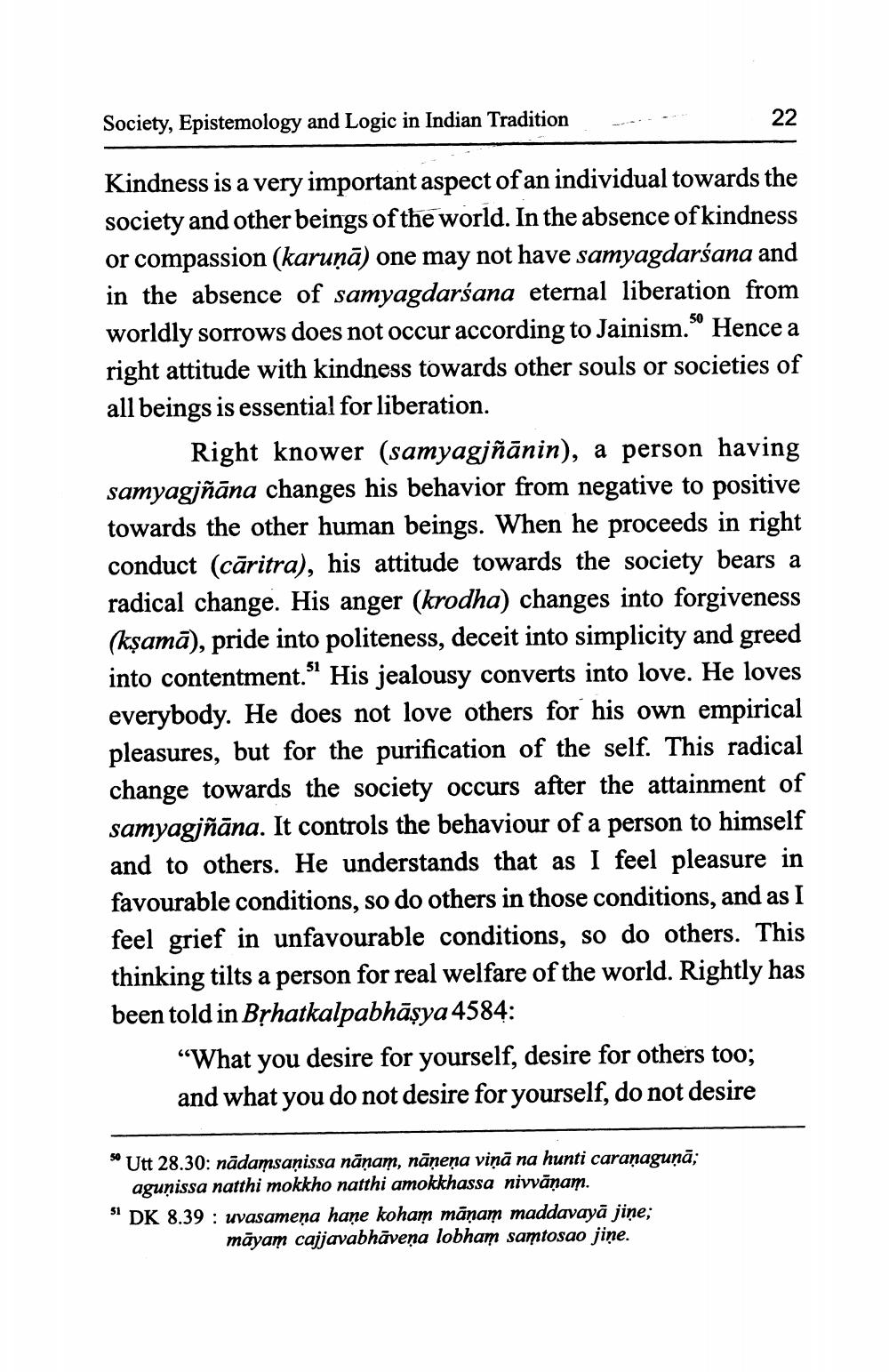________________
Society, Epistemology and Logic in Indian Tradition
22
Kindness is a very important aspect of an individual towards the society and other beings of the world. In the absence of kindness or compassion (karuņā) one may not have samyagdarśana and in the absence of samyagdarśana eternal liberation from worldly sorrows does not occur according to Jainism. Hence a right attitude with kindness towards other souls or societies of all beings is essential for liberation.
Right knower (samyagjñānin), a person having samyagjñāna changes his behavior from negative to positive towards the other human beings. When he proceeds in right conduct (cāritra), his attitude towards the society bears a radical change. His anger (krodha) changes into forgiveness (kşamā), pride into politeness, deceit into simplicity and greed into contentment." His jealousy converts into love. He loves everybody. He does not love others for his own empirical pleasures, but for the purification of the self. This radical change towards the society occurs after the attainment of samyagjñāna. It controls the behaviour of a person to himself and to others. He understands that as I feel pleasure in favourable conditions, so do others in those conditions, and as I feel grief in unfavourable conditions, so do others. This thinking tilts a person for real welfare of the world. Rightly has been told in Brhatkalpabhāșya 4584:
“What you desire for yourself, desire for others too; and what you do not desire for yourself, do not desire
** Utt 28.30: nādamsaņissa nānam, nāņeņa viņā na hunti caranaguņā;
agunissa natthi mokkho natthi amokkhassa nivvānam. 51 DK 8.39 : uvasamena hane koham mānam maddavayā jine;
māyam cajjavabhāveņa lobham samtosao jine.




